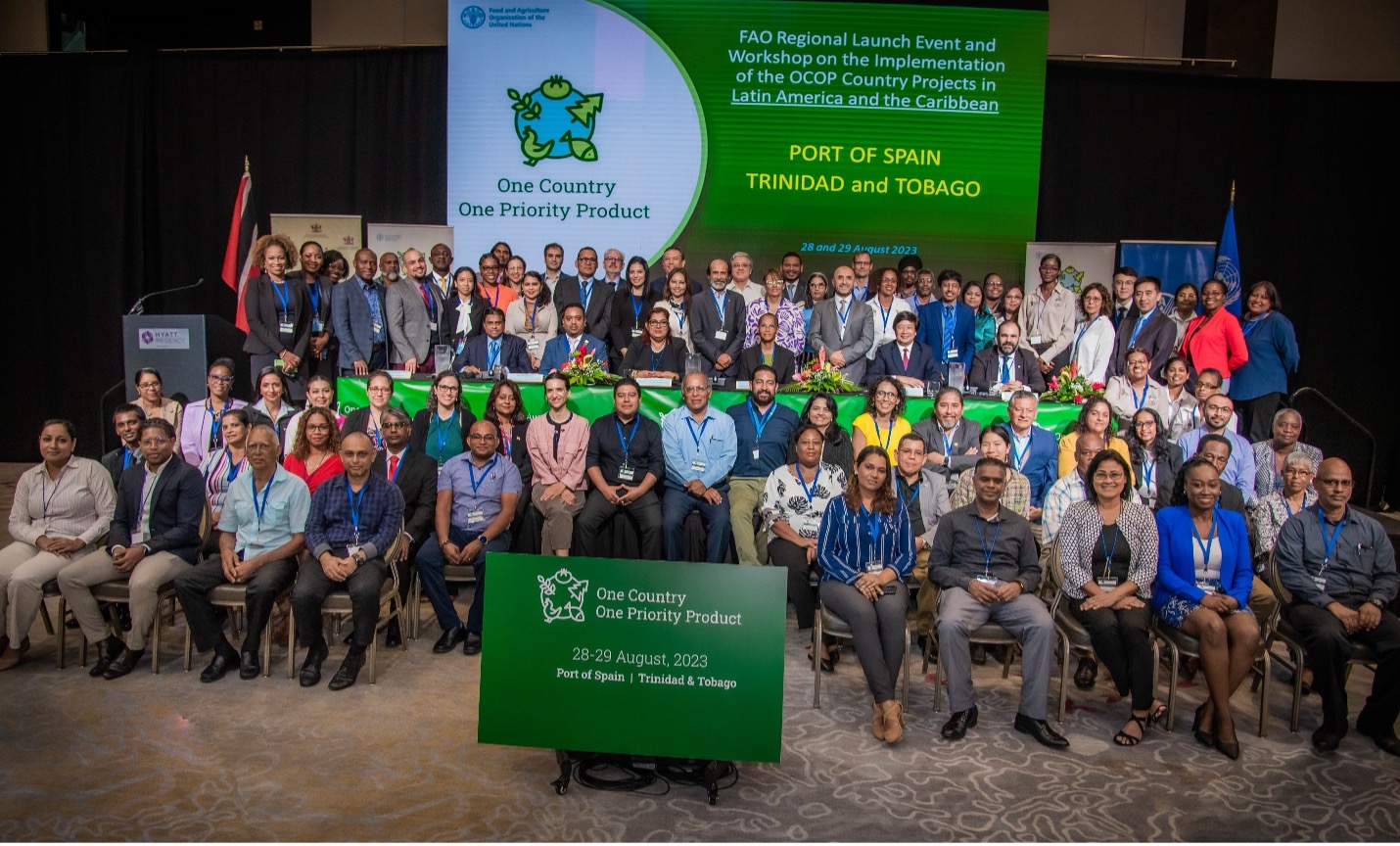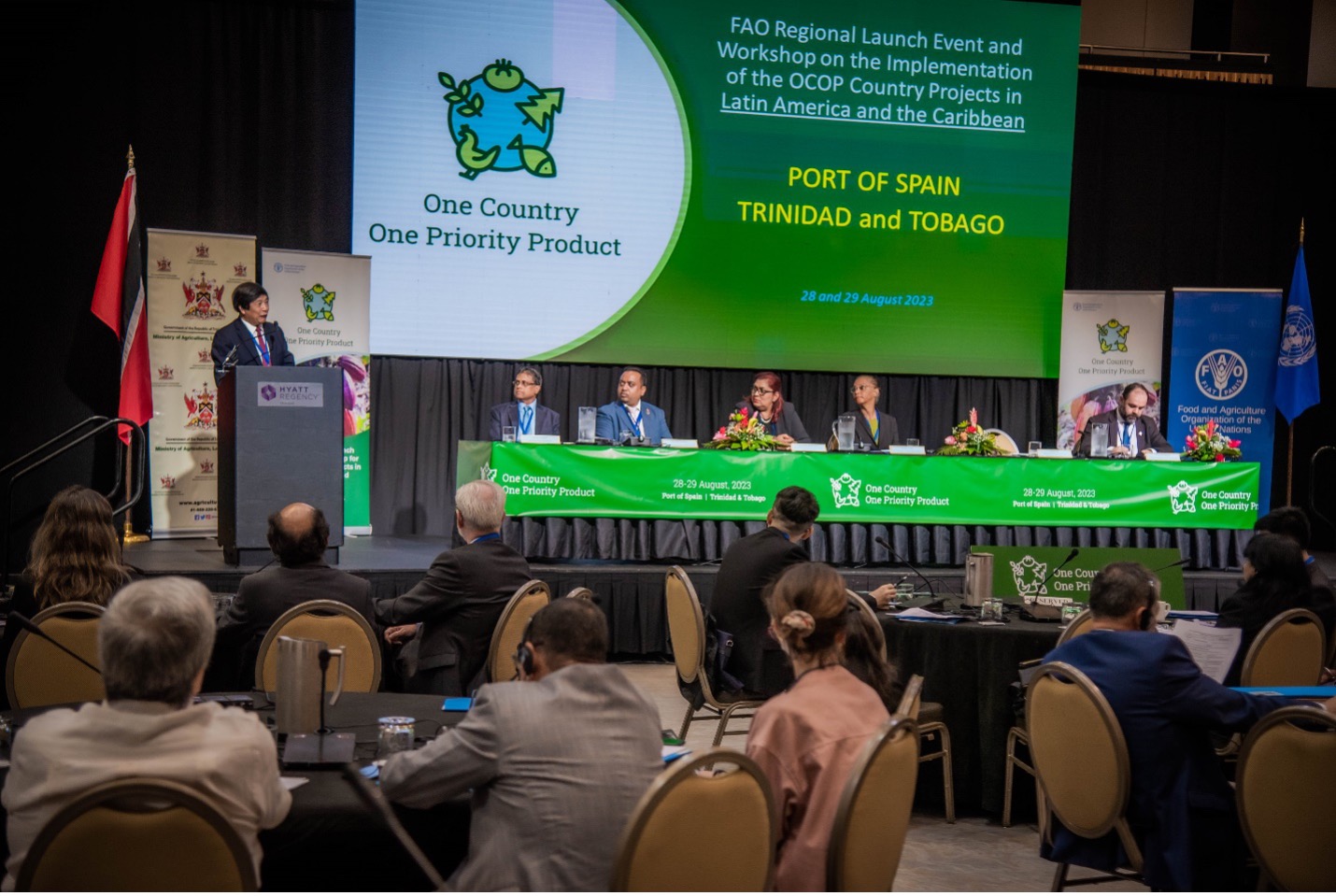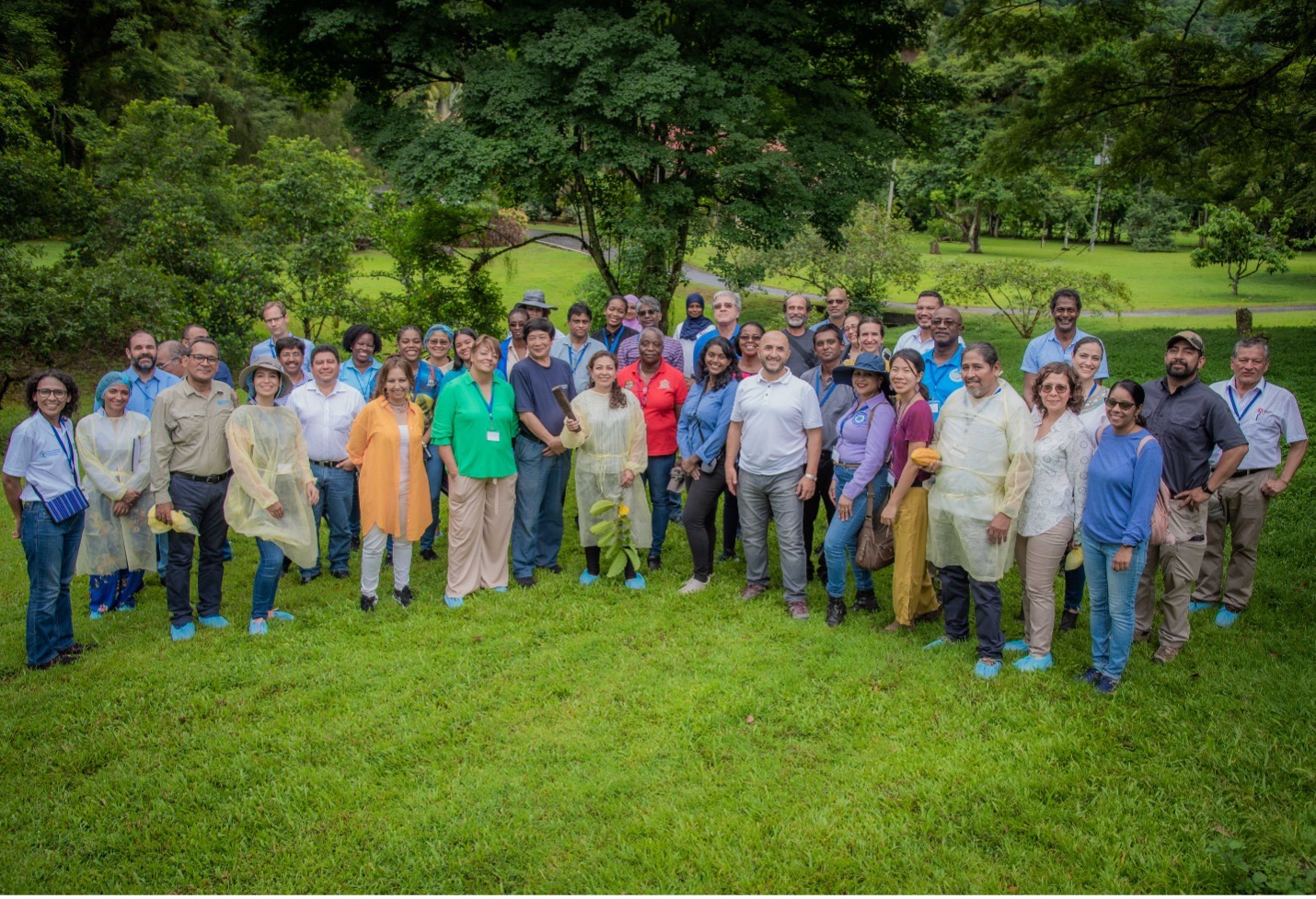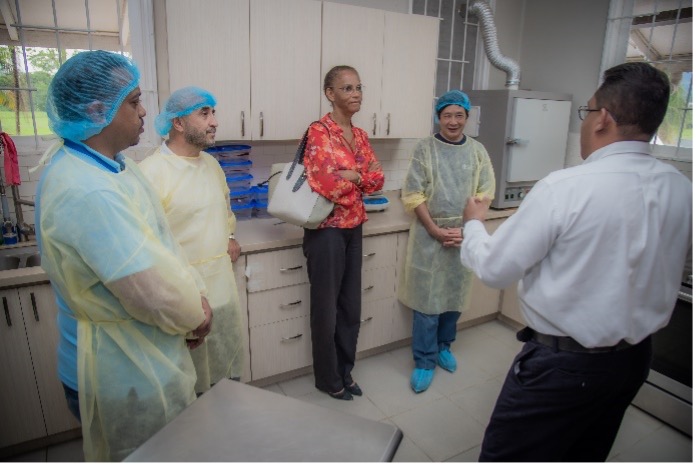News
A dynamic FAO Regional Launch and Workshop on the Implementation of OCOP Country Projects was held in Trinidad and Tobago

Group photo of the in-person participants at the OCOP regional event in Port of Spain.
©FAO
Port of Spain, 28-29 August 2023 – Over 120 participants from 14 countries across the region of Latin America and the Caribbean gathered in the capital of Trinidad and Tobago for the FAO Regional Launch and Workshop on the Implementation of the Country Projects under the One Country One Priority Product (OCOP) initiative. Trinidad and Tobago hosted this event as one of five OCOP demonstration countries across the globe, having been selected to promote the sustainable value chain of cocoa as the Special Agricultural Product (SAP).
This two-day event brought together the OCOP National Focal Points from the governments and FAO Country Offices of the potential project countries, senior managers and experts of FAO from the headquarters, Regional, Sub-regional and Country Offices as well as a wide range of stakeholders and partner agencies, such as academia, donors, the private sector, beneficiary farmers and the media. Ms. Renata Clarke, FAO Sub-Regional Coordinator for the Caribbean (FAO-SLC) and Ms Coormarie Goolabsing, Permanent Secretary, Ministry of Agriculture, Land and Fisheries, Trinidad and Tobago, warmly welcomed the participants on behalf of the FAO and the Government of Trinidad and Tobago.
Mr Jingyuan Xia, Director of FAO Plant Production and Protection Division (NSP), provided the introductory remarks and clearly emphasized the critical aspects of the OCOP initiative, especially the establishment of the coordination mechanism, synergies for partnership and resource mobilization, developing sustainable value chains of SAPs and contributing to achieving the FAO Strategic Framework 2022-31 and the UN Sustainable Development Goals.

NSP Director Xia delivering his opening remarks to highlight key messages about the OCOP. ©FAO
Activities during the Regional Launch Event and Workshop
On the first day of the event, the Regional Launch proceeded with keynote presentations focused on the progress of OCOP implementation. Mr Hafiz Muminjanov, OCOP Global Coordinator, provided updates on the OCOP and presented its global perspectives. Particularly, he emphasized that, to date, 83 countries officially submitted applications for the promotion of the sustainable value chains of 53 SAPs, and over USD 11 million has been mobilized for the implementation of this initiative. Ms. Ana Posas Guevara, OCOP Regional Focal Point in Latin America and the Caribbean presented the OCOP progress from the regional perspectives. She mentioned that, currently, there are 14 countries in the region that will promote 11 SAPs through the OCOP. Ms. Albada Beekham, Director of Research, Ministry of Agriculture, Land and Fisheries, OCOP National Focal Point, presented the country-level workplan and progress of the implementation of the OCOP in Trinidad and Tobago. This was followed by a recount of the experience of Trinidad and Tobago in cocoa value chain development shared by Mr Pathmanathan Umaharan, Professor of Genetics, Director, Cocoa Research Centre and The University of the West Indies. There are urgent needs for innovative approaches for better production, value addition of production and sustainable marketing, as well as the establishment of a sustainable community in Trinidad and Tobago. Moreover, cocoa experts from the Chinese Academy of Tropical Agricultural Sciences (CATAS), Mr. Fupeng Li and Ms. Chao Xue, presented China’s experience in cocoa value chain development, which featured standardization and innovations in technology and marketing strategies.
In the afternoon, the National Focal Points from all potential project countries presented the status of the implementation and coordination of the OCOP initiative. The emphasis was made on presenting the overviews of the formulated concept notes, the three-year workplans and the establishment of National Task Forces.
Following this recount of the OCOP implementation across the region, the key stakeholders represented by Mr Ryan Assin from the USAID and Mr Juan-Luis Molinuevo from the EU Delegation to Trinidad and Tobago described how to promote the synergies with the OCOP initiative in the areas of research, innovation, resource mobilization and partnerships. Next, the workshop participants split into three groups for parallel discussions on (1) coordination and synergies; (2) technical support and capacity development; and (3) multistakeholder engagement and resource mobilization. The suggestions and feedback from the group discussions were presented at the plenary session.
On the following day, participants visited the cocoa value chain facilities, including the La Reunion Estate, the Ortinola Cocoa Estate, the International Fine Cocoa Innovation Centre (IFCIC) and the University of the West Indies at their Cocoa Facilities to meet with various stakeholders, such as farmers, academics and traders. The participants learned about post-harvest technologies for cocoa developed by IFCIC, which is the leading research and innovation centre in the country.

Group photo of Participants during the field visit in the Ortinola Cocoa Estate. ©FAO
 |  |
Participants visiting the facilities of the International Fine Cocoa Innovation Centre ©FAO
Participants were actively engaged in the sessions throughout the two-day event. They were keen to learn, compare strategies in different countries and finalize their project proposals. They have described the event as very exciting, informative, interesting, beautiful and warm. In conclusion, the final remarks for this well-attended and fruitful event were shared between Ms Renata Clarke, FAO Sub-Regional Coordinator for the Caribbean (FAO-SLC), Mr Ric Ali, Deputy Permanent Secretary, Ministry of Agriculture, Land and Fisheries, Trinidad and Tobago and NSP Director Xia, who all echoed the importance of working together to develop a solid road map to ensure this initiative can be successfully promoted to reach farmers’ fields, make a significant improvement to the cocoa value chain and strengthen collaboration and partnership.
One Country One Priority Product webpage
Trinidad and Tobago to promote cocoa in UN project
FAO Regional Office for Latin America and Caribbean
One Country One Priority Product Initiative in Latin America and the Caribbean
Trinidad and Tobago workshop sets out project to invigorate their cocoa sector
Trinidad and Tobago: Country profiles
Expert training on value chain analysis for OCOP Demonstration Countries from all FAO Regions
